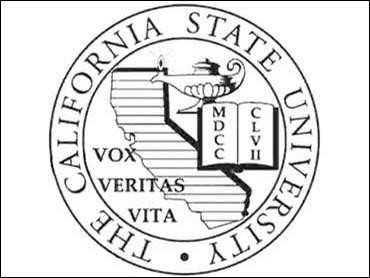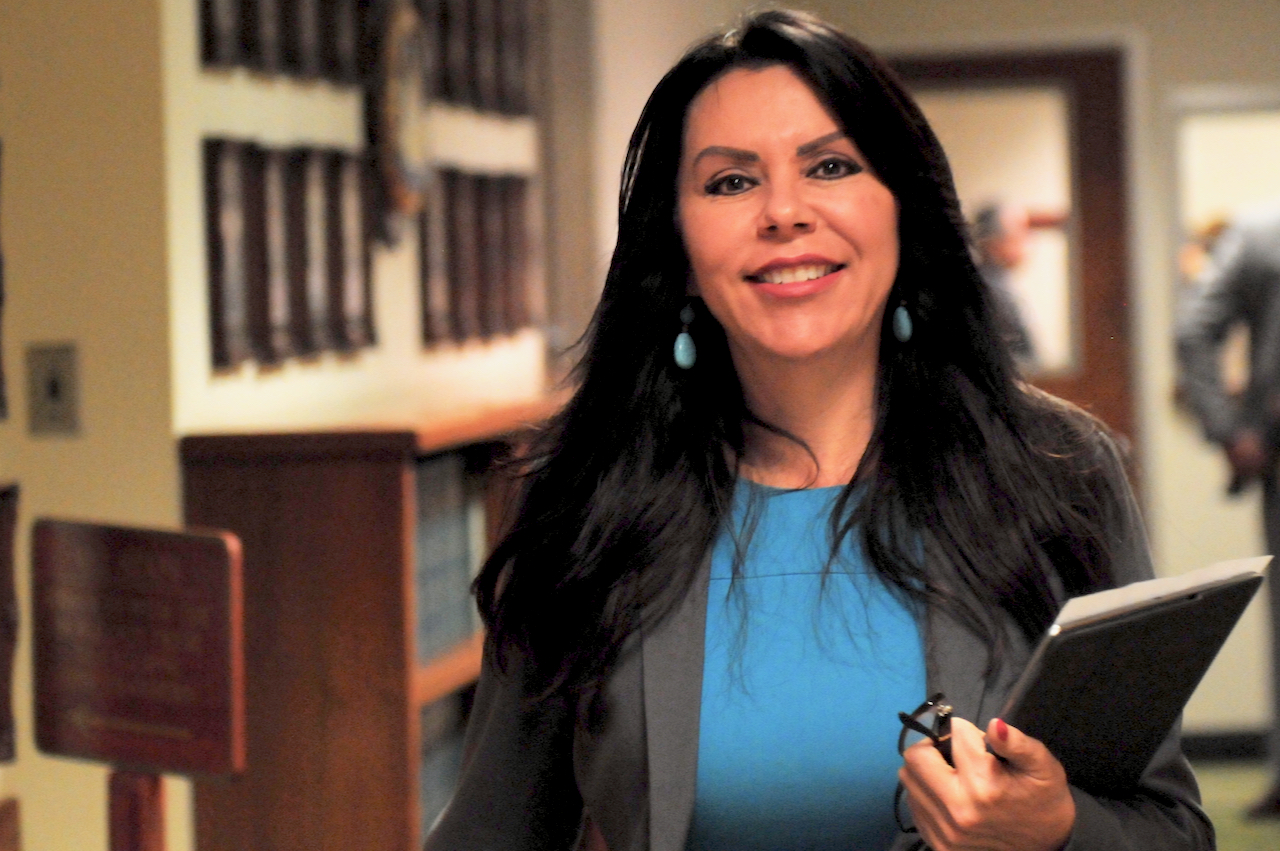
Assemblyman Miguel Santiago (Photo: Kevin Sanders for California Globe)
New Bill Would Make the First Two Years of California State College Free for Students
AB 1862 would only apply to those students who transfer for a bachelor’s degree.
By Evan Symon, January 16, 2020 4:48 pm
A bill announced on Wednesday would make California State University tuition free for some first-time California students for up to two years.
AB 1862, authored by Assemblyman Miguel Santiago (D-Los Angeles), would not apply to all students. Only resident students who have received an associate’s degree from a California Community College or those who have received special fee waivers would receive the free tuition. The two years of tuition would then only apply to California State University colleges around the state and would only cover a bachelor’s degree.
A previous version of the bill in 2018, also named AB 1862, was to waive student fees for any student going to a California Community College for two years as a stepping stone to a greater degree, but the Senate ultimately did not pass the bill due to opposition of the open language of the bill. There was also much concern due to the original language of the bill stating that it would be primarily for those under illegal immigrant Temporary Protected Status designation. Many lawmakers, as well as voters, did not want $10 million dollars to go people attending college for free in California who were not even residents.
While the new version of AB 1862 now requires a completed associates degree and other stipulations for two years of free college, the language referring to “residents” rather than “citizens,” shows that the new bill is a spiritual successor to the 2018 bill.
Assemblyman Santiago cited increasingly high tuition and higher student debts as the main reason for his bill.
“The cost of a bachelor’s degree is just too damn high,” stated Assemblyman Santiago. “Our students deserve the chance to earn a degree without being burdened by overwhelming debt. Providing two years of tuition-free CSU means students will save tens of thousands of dollars while earning their bachelor’s degree. AB 1862 puts that dream with in reach for California students and their families.”
“Last night there was a presidential debate,” continued Santiago. “Everyone talked about making community colleges free. Everybody talked about making a debt-free education. We’re going to do it here in California before anybody else does it.”
Student groups and education organizations such as the Los Angeles Community College District Board have given support to the new bill. They have said that the bill gives incentive for students to stay in higher education for a degree, and with other incidental costs, would make education more on par with how much they cost several decades ago.
“Baby Boomers had college amazingly cheap. In the early 80’s college could only cost a thousand dollars a semester,” noted student advocate Lamar Martin, citing the average yearly cost of college in 1982. “Even with inflation, it’s gone way out of affordability for a lot of us without taking on debt for half our life.”
“This is why [AB 1862] is a good first step. It makes college affordable again. We’d still have to pay for books and other costs, as well as pay for community college in the first place, but we can get an affordable degree with it.”
“It’s not ‘free’ free, and it only covers certain people. But we’ll have at least a chance now. So many people drop out because they can’t afford it.”
While it’s still too early for any formal opposition to come against the just announced bill, it has sparked worry from many on what the costs could be and if the proposed law could be abused.
“We’re not seeing anything about the ‘what if’s’ here,” said former college professor Pete Horvath. “What if they drop out of the CSU college? Could they go back? Would it be free? What would they owe if anything?”
“And what if they can’t even afford community college? What then? Do they not get anything? Doesn’t that defeat the whole purpose? What if they transfer after a year at a CSU college to something more private. Would they owe anything for not completing it at a CSU?”
“What would this cost taxpayers?”
“There’s a lot not being said and that should be pretty worrying.”
The bill will be formally introduced to the Assembly later his session.








When are the idiots in this state realize that nothing is free, who are what is going to be the funding for this bill. Not to mention the FACT, it has been proven over and over again, if you dont pay for something, then you will not value it. Until the tax payers are notified where the funding is going to come from, this needs to go into the trash can.
As usual they haven’t thought this through — at all, and maybe on purpose — but intend for the “free goody bait” to get out there to entice young voters (and their parents). They don’t care about the unintended consequences that always occur. They have no respect for the huge engine of the economy, or any knowledge of it, apparently. Look at AB 5: We’re nowhere near the end of the unexpected list of those who have been affected; e.g., translators, musicians, closed-caption workers, court reporters, and on and on and on, when AB 5 was widely reported as affecting Uber and Lyft only.
“Baby Boomers had college amazingly cheap. In the early 80’s college could only cost a thousand dollars a semester,” noted student advocate Lamar Martin, citing the average yearly cost of college in 1982. “Even with inflation, it’s gone way out of affordability for a lot of us without taking on debt for half our life.”
What is your course of study that the debt for a four-year degree would take you until roughly 40-years-old to pay off?
Of course, many of the colleges would be for it, because the cost would be obscured by another government slush fund created by tax money, allowing those schools connected to it to have a method for continual cost increases. It could also make California a destination state for students everywhere to take advantage of the system, then transferring elsewhere once they got their “free” education by way of the California taxpayer.